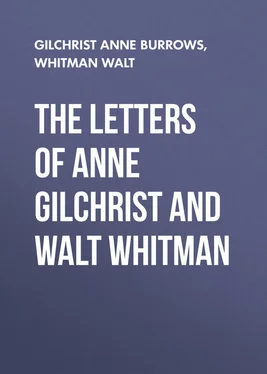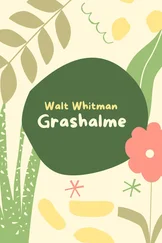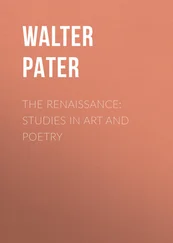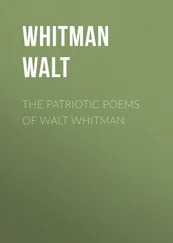Walt Whitman - The Letters of Anne Gilchrist and Walt Whitman
Здесь есть возможность читать онлайн «Walt Whitman - The Letters of Anne Gilchrist and Walt Whitman» — ознакомительный отрывок электронной книги совершенно бесплатно, а после прочтения отрывка купить полную версию. В некоторых случаях можно слушать аудио, скачать через торрент в формате fb2 и присутствует краткое содержание. Жанр: foreign_antique, foreign_prose, на английском языке. Описание произведения, (предисловие) а так же отзывы посетителей доступны на портале библиотеки ЛибКат.
- Название:The Letters of Anne Gilchrist and Walt Whitman
- Автор:
- Жанр:
- Год:неизвестен
- ISBN:нет данных
- Рейтинг книги:3 / 5. Голосов: 1
-
Избранное:Добавить в избранное
- Отзывы:
-
Ваша оценка:
- 60
- 1
- 2
- 3
- 4
- 5
The Letters of Anne Gilchrist and Walt Whitman: краткое содержание, описание и аннотация
Предлагаем к чтению аннотацию, описание, краткое содержание или предисловие (зависит от того, что написал сам автор книги «The Letters of Anne Gilchrist and Walt Whitman»). Если вы не нашли необходимую информацию о книге — напишите в комментариях, мы постараемся отыскать её.
The Letters of Anne Gilchrist and Walt Whitman — читать онлайн ознакомительный отрывок
Ниже представлен текст книги, разбитый по страницам. Система сохранения места последней прочитанной страницы, позволяет с удобством читать онлайн бесплатно книгу «The Letters of Anne Gilchrist and Walt Whitman», без необходимости каждый раз заново искать на чём Вы остановились. Поставьте закладку, и сможете в любой момент перейти на страницу, на которой закончили чтение.
Интервал:
Закладка:
“I am an acme of things accomplish’d, and I am an encloser of things to be.
“My feet strike an apex of the apices of the stairs;
On every step bunches of ages, and larger bunches between the steps;
All below duly travell’d and still I mount and mount.
“Rise after rise bow the phantoms behind me:
Afar down I see the huge first Nothing – I know
I was even there;
I waited unseen and always, and slept through the lethargic mist,
And took my time, and took no hurt from the fetid carbon.
“Long I was hugg’d close – long and long.
“Immense have been the preparations for me,
Faithful and friendly the arms that have help’d me.
Cycles ferried my cradle, rowing and rowing like cheerful boatmen;
For room to me stars kept aside in their own rings,
They sent influences to look after what was to hold me.
“Before I was born out of my mother, generations guided me;
My embryo has never been torpid – nothing could overlay it.
“For it the nebula cohered to an orb,
The long slow strata piled to rest it on,
Vast vegetables gave it sustenance,
Monstrous sauroids transported it in their mouths and deposited it with care.
“All forces have been steadily employ’d to complete and delight me;
Now on this spot I stand with my robust Soul.”
Not in vain have they pierced space as well as time and found “a vast similitude interlocking all.”
“I open my scuttle at night and see the far-sprinkled systems,
And all I see, multiplied as high as I can cypher, edge but the rim of the farther systems.
“Wider and wider they spread, expanding, always expanding,
Outward, and outward, and for ever outward.
“My sun has his sun, and round him obediently wheels,
He joins with his partners a group of superior circuit,
And greater sets follow, making specks of the greatest inside them.
“There is no stoppage, and never can be stoppage;
If I, you, and the worlds, and all beneath or upon their surfaces, were this moment reduced back to a pallid float, it would not avail in the long run;
We should surely bring up again where we now stand,
And as surely go as much farther – and then farther and farther.”
Not in vain for him have they penetrated into the substances of things to find that what we thought poor, dead, inert matter is (in Clerk Maxwell’s words) “a very sanctuary of minuteness and power where molecules obey the laws of their existence, and clash together in fierce collision, or grapple in yet more fierce embrace, building up in secret the forms of visible things”; each stock and stone a busy group of Ariels plying obediently their hidden tasks.
“Why! who makes much of a miracle?
As to me, I know of nothing else but miracles,
“To me, every hour of the light and dark is a miracle,
Every cubic inch of space is a miracle,
Every square yard of the surface of the earth is spread with the same, …
Every spear of grass – the frames, limbs, organs, of men and women, and all that concerns them,
All these to me are unspeakably perfect miracles.”
The natural is the supernatural, says Carlyle. It is the message that comes to our time from all quarters alike; from poetry, from science, from the deep brooding of the student of human history. Science materialistic? Rather it is the current theology that is materialistic in comparison. Science may truly be said to have annihilated our gross and brutish conceptions of matter, and to have revealed it to us as subtle, spiritual, energetic beyond our powers of realization. It is for the Poet to increase these powers of realization. He it is who must awaken us to the perception of a new heaven and a new earth here where we stand on this old earth. He it is who must, in Walt Whitman’s words, indicate the path between reality and the soul.
Above all is every thought and feeling in these poems touched by the light of the great revolutionary truth that man, unfolded through vast stretches of time out of lowly antecedents, is a rising, not a fallen creature; emerging slowly from purely animal life; as slowly as the strata are piled and the ocean beds hollowed; whole races still barely emerged, countless individuals in the foremost races barely emerged: “the wolf, the snake, the hog” yet lingering in the best; but new ideals achieved, and others come in sight, so that what once seemed fit is fit no longer, is adhered to uneasily and with shame; the conflicts and antagonisms between what we call good and evil, at once the sign and the means of emergence, and needing to account for them no supposed primeval disaster, no outside power thwarting and marring the Divine handiwork, the perfect fitness to its time and place of all that has proceeded from the Great Source. In a word that Evil is relative; is that which the slowly developing reason and conscience bid us leave behind. The prowess of the lion, the subtlety of the fox, are cruelty and duplicity in man.
“Silent and amazed, when a little boy,
I remember I heard the preacher every Sunday put God in his statements,
As contending against some being or influence.”
says the poet. And elsewhere, “Faith, very old now, scared away by science” – by the daylight science lets in upon our miserable, inadequate, idolatrous conceptions of God and of His works, and on the sophistications, subterfuges, moral impossibilities, by which we have endeavoured to reconcile the irreconcilable – the coexistence of omnipotent Goodness and an absolute Power of Evil – “Faith must be brought back by the same power that caused her departure: restored with new sway, deeper, wider, higher than ever.” And what else, indeed, at bottom, is science so busy at? For what is Faith? “Faith,” to borrow venerable and unsurpassed words, “is the substance of things hoped for, the evidence of things not seen.” And how obtain evidence of things not seen but by a knowledge of things seen? And how know what we may hope for, but by knowing the truth of what is, here and now? For seen and unseen are parts of the Great Whole: all the parts interdependent, closely related; all alike have proceeded from and are manifestations of the Divine Source. Nature is not the barrier between us and the unseen but the link, the communication; she, too, has something behind appearances, has an unseen soul; she, too, is made of “innumerable energies.” Knowledge is not faith, but it is faith’s indispensable preliminary and starting ground. Faith runs ahead to fetch glad tidings for us; but if she start from a basis of ignorance and illusion, how can she but run in the wrong direction? “Suppose,” said that impetuous lover and seeker of truth, Clifford, “Suppose all moving things to be suddenly stopped at some instant, and that we could be brought fresh, without any previous knowledge, to look at the petrified scene. The spectacle would be immensely absurd. Crowds of people would be senselessly standing on one leg in the street looking at one another’s backs; others would be wasting their time by sitting in a train in a place difficult to get at, nearly all with their mouths open, and their bodies in some contorted, unrestful posture. Clocks would stand with their pendulums on one side. Everything would be disorderly, conflicting, in its wrong place. But once remember that the world is in motion, is going somewhere, and everything will be accounted for and found just as it should be. Just so great a change of view, just so complete an explanation is given to us when we recognize that the nature of man and beast and of all the world is going somewhere . The maladaptions in organic nature are seen to be steps toward the improvement or discarding of imperfect organs. The baneful strife which lurketh inborn in us, and goeth on the way with us to hurt us , is found to be the relic of a time of savage or even lower condition.” “Going somewhere!” That is the meaning then of all our perplexities! That changes a mystery which stultified and contradicted the best we knew into a mystery which teaches, allures, elevates; which harmonizes what we know with what we hope. By it we begin to
Читать дальшеИнтервал:
Закладка:
Похожие книги на «The Letters of Anne Gilchrist and Walt Whitman»
Представляем Вашему вниманию похожие книги на «The Letters of Anne Gilchrist and Walt Whitman» списком для выбора. Мы отобрали схожую по названию и смыслу литературу в надежде предоставить читателям больше вариантов отыскать новые, интересные, ещё непрочитанные произведения.
Обсуждение, отзывы о книге «The Letters of Anne Gilchrist and Walt Whitman» и просто собственные мнения читателей. Оставьте ваши комментарии, напишите, что Вы думаете о произведении, его смысле или главных героях. Укажите что конкретно понравилось, а что нет, и почему Вы так считаете.












